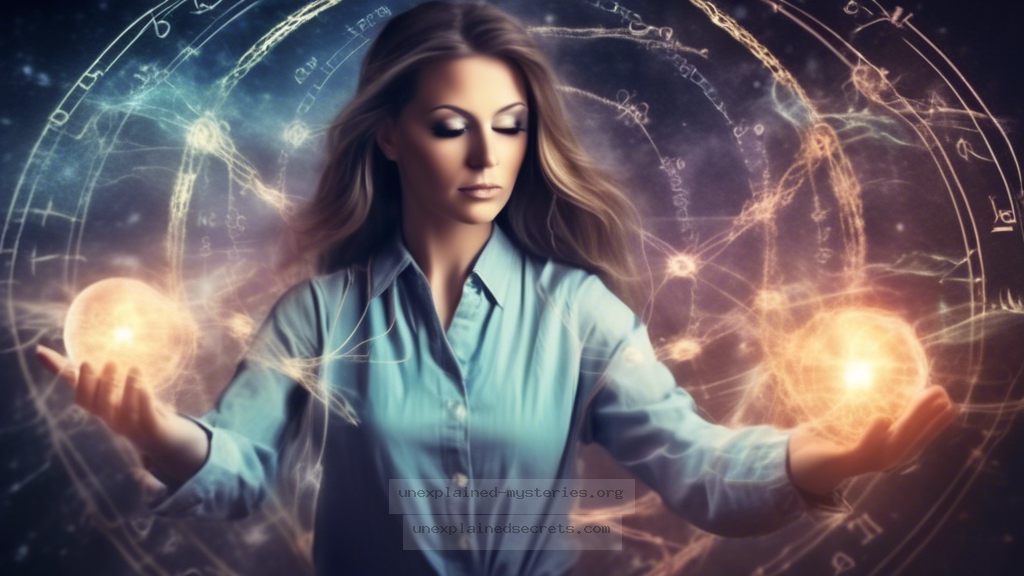Can Real Psychic Abilities Be Scientifically Tested and Proven?
Can Real Psychic Abilities Be Scientifically Tested and Proven?
The question of whether psychic abilities exist and can be scientifically tested has captivated humanity for centuries. With countless claims of extraordinary insights and phenomena that defy logical explanation, the realm of psychic phenomena remains a tantalizing mystery. This blog post will delve into the complexities of psychic abilities, exploring documented cases, historical context, scientific scrutiny, and the implications of these extraordinary claims. By unpacking the enigma surrounding psychic abilities, we can better understand their potential, limitations, and future in scientific inquiry.
Historical Context of Psychic Abilities
The fascination with psychic abilities dates back to ancient civilizations. From oracles in Greece to shamans in indigenous cultures, many societies have revered individuals believed to possess extraordinary mental powers. The 19th century saw a surge in interest with the rise of Spiritualism, where mediums claimed to communicate with the dead. Notable figures such as Edgar Cayce and Madame Blavatsky emerged during this time, further popularizing the idea of psychic phenomena.
Throughout history, various cultures have documented instances of clairvoyance, telepathy, and precognition. For example, the famous case of the British psychic D.D. Home, who performed numerous feats of levitation and communication with spirits, left many questioning the boundaries of human perception. These historical accounts emphasize the enduring belief in psychic phenomena across different societies and time periods. However, despite their popularity, these claims often lack rigorous scientific validation.
Core Concepts of Psychic Phenomena
Understanding psychic abilities requires a grasp of the core concepts associated with them. Some of the most commonly discussed abilities include:
- Clairvoyance: The ability to gain information about an object, person, or event through extrasensory perception (ESP).
- Telepathy: Direct communication of thoughts or feelings between individuals without using any known human senses.
- Precognition: The ability to perceive or predict future events before they happen.
- Psychometry: The ability to obtain information about a person or event by touching an object associated with them.
These abilities challenge our understanding of consciousness and the limits of human perception. While skeptics argue that these phenomena can be explained through psychological mechanisms or coincidence, proponents maintain that genuine psychic abilities exist and deserve exploration.
Scientific Testing of Psychic Abilities
Scientific inquiry into psychic phenomena began in earnest in the early 20th century with the establishment of parapsychology as a field. Researchers such as J.B. Rhine at Duke University conducted experiments to test the validity of psychic claims. Rhine is best known for his work with Zener cards, which were designed to measure ESP through randomized guessing.
Despite initial enthusiasm, the results were often inconclusive or criticized for lack of rigor. Recent studies have attempted to employ advanced methodologies, such as the use of fMRI scans to observe brain activity during psychic tasks. Some researchers claim to have found patterns suggesting the existence of psychic phenomena, but these findings are contentious and frequently debated.
Documented Cases of Psychic Phenomena
Several documented cases continue to intrigue researchers and enthusiasts alike. One of the most famous cases involves the psychic Uri Geller, who gained notoriety in the 1970s for his purported ability to bend spoons and perform telepathy. Skeptics have argued that Geller’s feats can be attributed to trickery, while supporters assert that his abilities are genuine.
Another compelling case is that of the psychic medium John Edward, who gained fame for his ability to communicate with the deceased. Edward’s performances often leave audiences in awe, as he seemingly provides accurate details about loved ones. However, critics point to the psychological phenomenon known as cold reading, where individuals use vague statements to elicit strong emotional responses from participants.
| Case | Claimed Ability | Outcome |
|---|---|---|
| Uri Geller | Spoon bending, telepathy | Controversial; mixed evidence |
| John Edward | Mediumship | Popular; criticisms of cold reading |
| D.D. Home | Levitation, mediumship | Historical significance; debated authenticity |
Practical Implications of Psychic Research
The exploration of psychic abilities has practical implications that extend beyond mere curiosity. For instance, if psychic abilities can be scientifically validated, they could revolutionize fields such as psychology, medicine, and even law enforcement. Techniques derived from psychic insights might aid in solving crimes, providing therapeutic insights, or enhancing mental health practices.
Conversely, the lack of empirical support for psychic abilities may lead to skepticism and potential harm if individuals rely on these abilities over traditional medical or psychological therapies. This underscores the need for responsible investigation and open-mindedness in the exploration of psychic phenomena.
Alternative Perspectives on Psychic Abilities
While many researchers strive to validate or debunk psychic phenomena through rigorous scientific methods, alternative perspectives offer insights into the cultural and psychological dimensions of these claims. Some argue that psychic abilities may not fit within the traditional scientific framework, as they may operate outside of measurable parameters.
Others suggest that psychic experiences are deeply personal and subjective, influenced by cultural beliefs and individual psychology. This perspective emphasizes the need to understand psychic phenomena as part of a broader human experience rather than merely a scientific anomaly. By considering these alternative views, researchers can adopt a more holistic approach to studying psychic abilities.
Common Misconceptions About Psychic Phenomena
Misinformation and misconceptions about psychic abilities abound, often hindering serious investigation. One prevalent misconception is that all psychics can perform extraordinary feats on demand; in reality, many psychics report varying levels of ability and experience. Some may have sporadic insights, while others may be more consistently accurate.
Another common belief is that psychic abilities can be easily taught or acquired. While some individuals may develop their intuitive skills through practice and meditation, many researchers argue that genuine psychic abilities may be innate rather than learned. Understanding these nuances is crucial for anyone interested in exploring psychic phenomena.
Best Practices for Investigating Psychic Claims
For those interested in investigating psychic phenomena, adopting best practices can enhance the credibility and rigor of the inquiry. Here are some recommended strategies:
- Maintain Skeptical Open-Mindedness: Balance openness to possibilities with critical analysis.
- Use Controlled Settings: Conduct experiments under controlled conditions to minimize bias and maximize objectivity.
- Document Everything: Keep thorough records of claims, observations, and outcomes to track patterns and anomalies.
- Collaborate with Experts: Work alongside professionals in psychology, neuroscience, and parapsychology for a well-rounded approach.
Future Developments in Psychic Research
As technology advances, the future of psychic research looks promising. Emerging fields such as neurotheology, which studies the relationship between spirituality and brain function, may offer new insights into the mechanisms behind psychic experiences. Additionally, the rise of digital media allows for broader dissemination of research findings and encourages public engagement in the exploration of psychic abilities.
Furthermore, interdisciplinary collaborations may pave the way for innovative methodologies that bridge the gap between empirical science and the subjective experiences associated with psychic phenomena. The exploration of consciousness, quantum physics, and human perception may unlock new understandings of psychic abilities, potentially validating their existence in ways previously thought impossible.
Conclusion
The question of whether psychic abilities can be scientifically tested and proven remains a captivating mystery. While historical accounts and documented cases provide fascinating insights, the scientific community continues to grapple with the complexities of validating these phenomena. As we explore the nuances of psychic abilities, it becomes clear that a balanced approach—combining rigorous scientific inquiry with an appreciation for the subjective human experience—will be essential in unraveling this enduring enigma. The future holds promise for deeper understanding and exploration, but until then, the mysteries of psychic phenomena continue to intrigue and inspire.
Other Articles
Recent Posts
- What Happened to Flight MH370? The Conspiracy Theories That Still Haunt Us
- What Secrets Lurk Within the Walls of the Infamous Trans-Allegheny Lunatic Asylum?
- What Evidence Supports the Existence of Bigfoot in the Pacific Northwest?
- What Happened to the Indus Valley Civilization? Unraveling the Mysteries of Ancient Urban Life
- Can Telepathy Be Scientifically Proven Through Laboratory Evidence?







